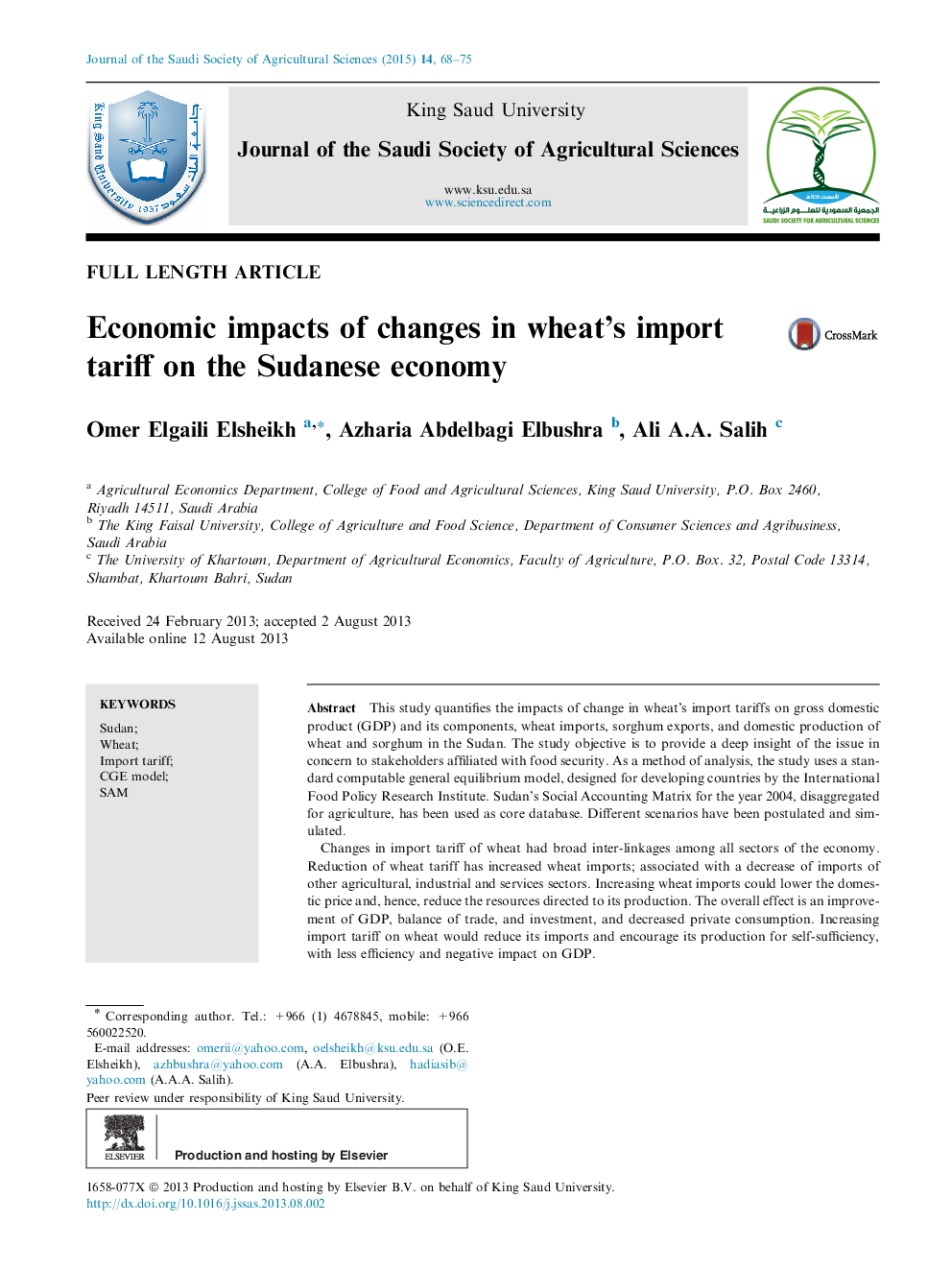| کد مقاله | کد نشریه | سال انتشار | مقاله انگلیسی | نسخه تمام متن |
|---|---|---|---|---|
| 4495644 | 1623733 | 2015 | 8 صفحه PDF | دانلود رایگان |
This study quantifies the impacts of change in wheat’s import tariffs on gross domestic product (GDP) and its components, wheat imports, sorghum exports, and domestic production of wheat and sorghum in the Sudan. The study objective is to provide a deep insight of the issue in concern to stakeholders affiliated with food security. As a method of analysis, the study uses a standard computable general equilibrium model, designed for developing countries by the International Food Policy Research Institute. Sudan’s Social Accounting Matrix for the year 2004, disaggregated for agriculture, has been used as core database. Different scenarios have been postulated and simulated.Changes in import tariff of wheat had broad inter-linkages among all sectors of the economy. Reduction of wheat tariff has increased wheat imports; associated with a decrease of imports of other agricultural, industrial and services sectors. Increasing wheat imports could lower the domestic price and, hence, reduce the resources directed to its production. The overall effect is an improvement of GDP, balance of trade, and investment, and decreased private consumption. Increasing import tariff on wheat would reduce its imports and encourage its production for self-sufficiency, with less efficiency and negative impact on GDP.Domestic production of wheat is highly variable over time, and falls short of satisfying the demand, whereas wheat consumption is increasing over time. Encouraging innovation of convenient and fast food industry using domestic traditional grains is recommended to curb wheat consumption. Furthermore, wheat imports should be conditioned on availability of hard currency, domestic production capacity, and food gap, while maintaining stable exchange rate that strikes a balance between encouraging sorghum exports and wheat imports. This should be associated with increased investment in stabilizing and increasing wheat production, and remedy the predicaments facing agriculture.
Journal: Journal of the Saudi Society of Agricultural Sciences - Volume 14, Issue 1, January 2015, Pages 68–75
